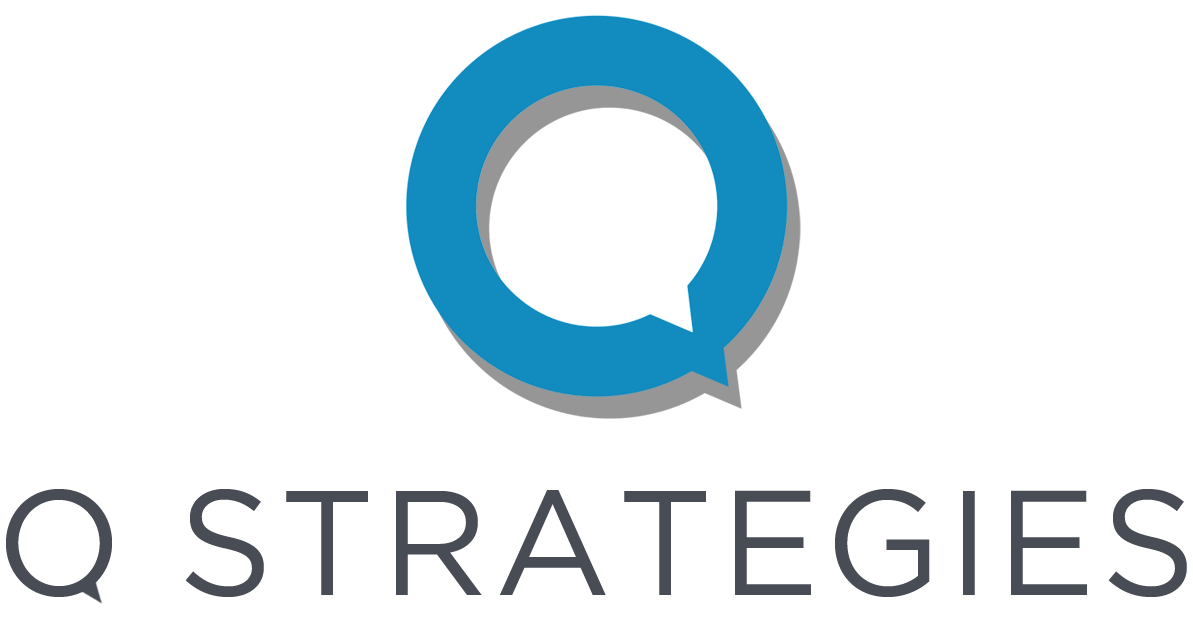Since starting at Q Strategies, I’ve asked a lot of questions. More than I ever imagined. Whenever I’m asked, “what do you do?” I wonder if ‘asker of questions’ qualifies as a work title. But answering this common question gives me the chance to explain how Q Strategies is different from other agencies. It goes something like this:
Me: I work at a marketing and PR firm, Q Strategies. We help companies get answers to their questions. Then we use that market research and help them build meaningful, measured plans.
Them: What kinds of things do you find out? (Everyone wants the dirt!)
Me: It depends. Sometimes I find out that people want to hear from a company more often, sometimes I find out that a competitor offers better service, sometimes I find out that they like the company but not someone who works there.
Them: Wow, people tell you that? How do you get them to talk to you?
Me: I just ask questions.
Of course, it’s not quite that easy. Here are three tips to help you ask better questions on your next research project.
1. Ask why?
The childlike innocence of asking “why” gets people past the facts and on to the story. For example, someone tells you that they don’t shop around because they have a go-to product. It’s so easy to move on to the next question. But why did they select that product or company in the first place? That’s the real answer you need.
2. Ask if your example is an outlier.
Let’s say I’ve heard that a company provides good service. In my interview, I give an example. “Yesterday I was having a similar conversation, and they told me they really love the customer service at this company, do you think that’s an outlier?” Simply asking if a company has good service is too leading. Asking them to tell you about a service experience is helpful but doesn’t really tell you what they know about the reputation of this company. By asking if your example is an outlier, you can get the feedback you need without leading the interview in a certain direction.
3. Keep quiet and drink your coffee.
If you’ve ever been interviewed by a reporter you probably recognize the old trick of using strained silence until the person being interviewed ends up blurting out something they shouldn’t have said. You don’t have to stare people down or ask uncomfortable questions to get honest, meaningful answers. Over strategically placed sips of coffee, you can create nonthreatening silence. You ask a question, they answer, but you feel that maybe there is more. You take a sip of coffee, you write a note in your binder. There is silence. Then they fill it by telling you more on the topic. This is also what happens when you are putting on your coat or looking for your keys. Suddenly, the person you’ve been speaking with for 30 minutes will tell you something unexpected that could change the entire direction of your research.
Of course, all of our interviews are anonymous, and we never report the names of those we spoke with unless they have given us permission to do so. Respect your client and those trusting you with their ideas and opinions. As the researcher, you have an obligation to both people.
Would you like to know more about our research-based process? Contact us anytime. We look forward to asking you some questions!
What kinds of questions do you find help the most in your research? Tell us in the comment section.


